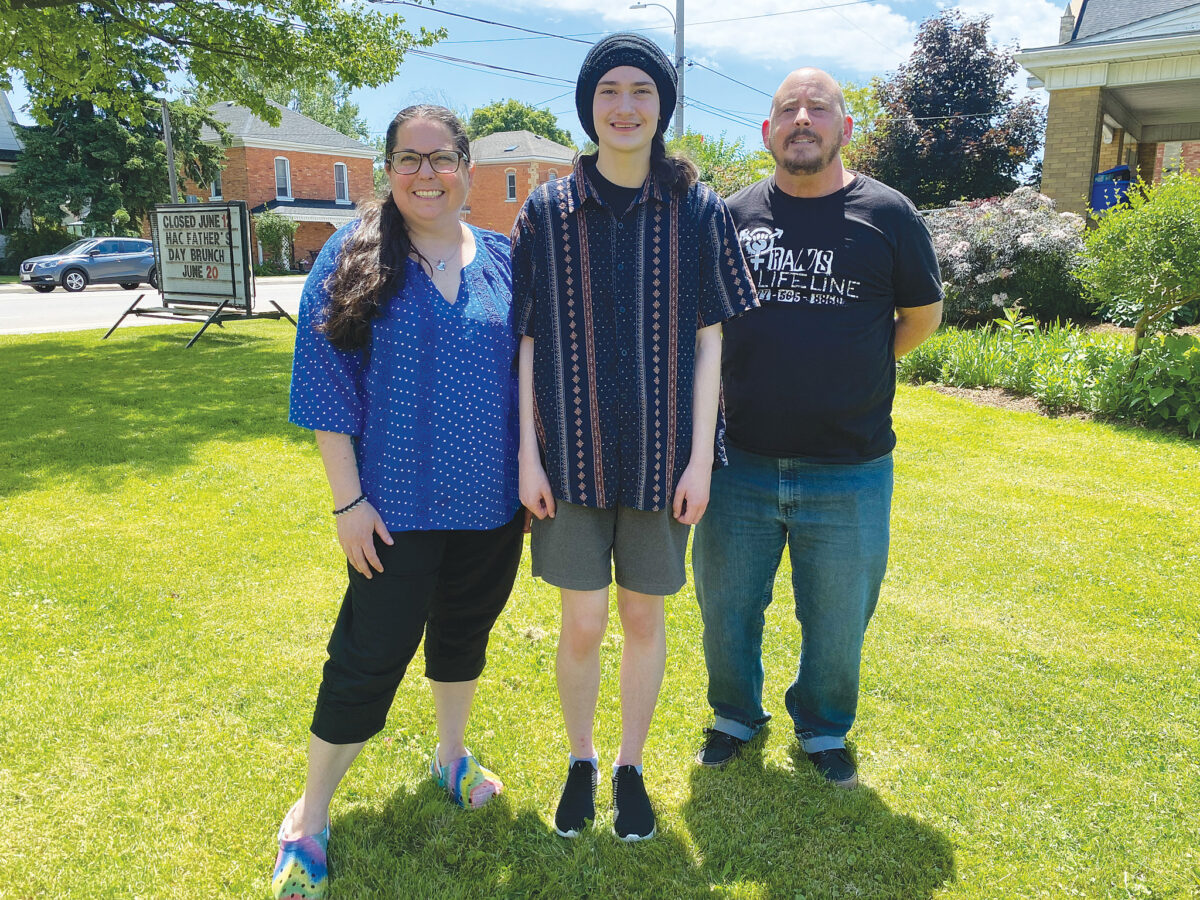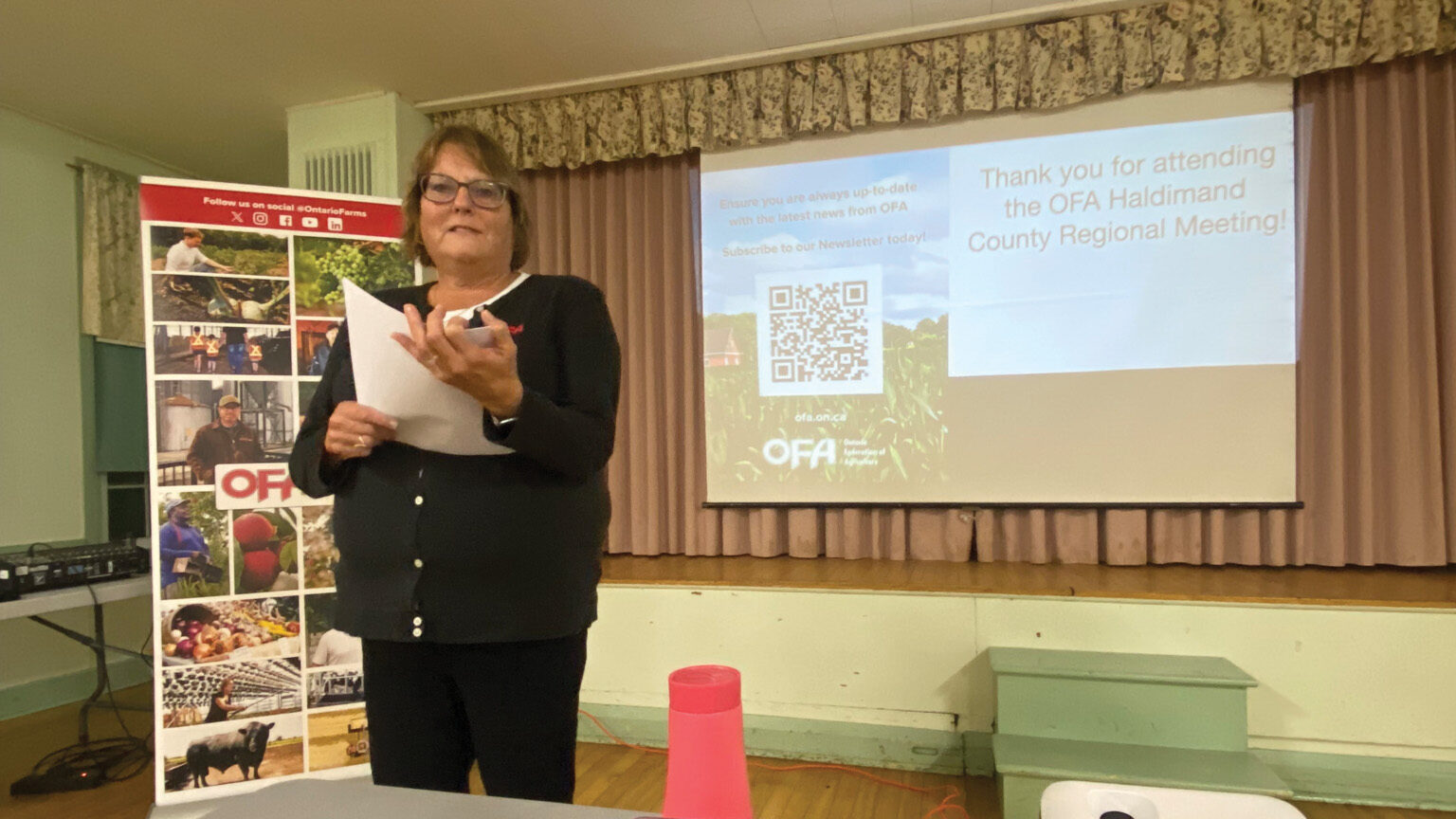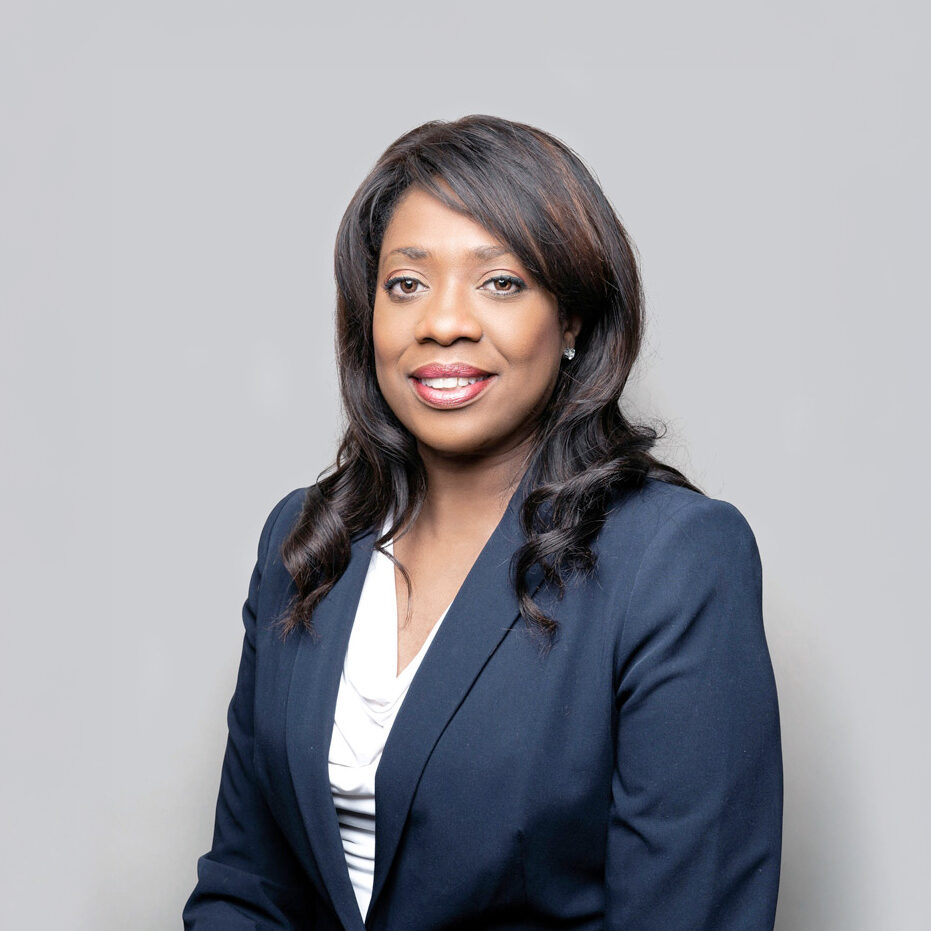HAGERSVILLE—A small but dedicated crowd of supporters stuck around following last Thursday’s strawberry social at the Haldimand Abilities Centre (HAC) to listen to a talk from local transgender advocates as part of Pride month.
Heading up the discussion was Will Rowe, a Dunnville-based community activist who began his transition process to recognize his true male self roughly 20 years ago.
“I grew up in the 70s in a small northern Ontario town,” said Rowe. “I was fortunate because I came from a poor working-class town where there weren’t a lot of gender roles. As a female-bodied person … I was allowed to move in a more fluid way. Little girls are allowed to be tomboys, but for little boys it’s really difficult to enact a more feminine identity.”
Rowe began living as a lesbian, with a biased perspective on transitioning: “I had seen Jerry Springer, which had horrible views of trans women. Always the most exaggerated, the most ridiculous. They made trans women look like complete idiots.”

He started working in the shelter system at a time when they were “trying to figure out ‘are trans women real women and can we figure out how to serve trans women?’”
He continued, “That’s when I met my first trans people in life. I was so impressed with the stamina and the courage and just the kind of ‘in-your-face, screw you, this is how I’m going to live’ mentality.”
It was also at this time that Rowe first realized many of the societal challenges facing the trans community.
“A lot of those trans women had HIV or Hepatitis-C, and they were doing sex work. There’s not a darn thing wrong with sex work, it’s real work and it is valid, but it shouldn’t be your only option,” he asserted.
Inspired by the courageousness he saw, Rowe decided at age 40 to begin his own transition process.
“Unfortunately, my parents, who had kind of just gotten used to me being a lesbian, didn’t do too well with the whole trans thing. I haven’t spoken with them since, and that was 18 years ago, and that’s okay,” Rowe said.
His journey saw him go back to school and earn a master’s degree in social work.
“I knew I was going to need the education to stay employed. I can tell you the stats and all the research that’s been done in the last 20 years; trans people are highly educated, but very under-employed. We tend to have more issues around substance use and abuse, suicidality, mental health issues, we remain unhoused a lot,” he explained. “That has nothing to do with us and our belief in ourselves as trans people, and everything to do with transphobia and how the world treats us.”
Since 2007, Rowe has worked specifically with trans and non-binary individuals. While they had not previously met, 16-year-old Haldimand-based teen Alec Tackaberry is following in Will’s footsteps, albeit at a younger age.
Alec began his own transition journey at 11 years old. His mother, Heather, spoke at the event as well.
“He had been asking questions like ‘I don’t think I’m really a girl, I’m a boy aren’t I?’” recalled Heather. “When we asked what he wanted to be when he grew up, he said ‘I’m going to be a dad.’”
She continued, “A lot of people ask us, ‘What was your first emotional reaction?’ Ours was guilt because we were very ignorant. We had no idea what being transgender meant, what it looked like, or why he felt that he was male.”
That confusion was short-lived however, as her and Alec’s father set to work researching and gaining a better understanding of the issue: “We began to understand a lot more of what Alec was communicating to us, and looking back, had been communicating to us since he learned to talk.”
With that support in mind, Alec took his first trip to McMaster Children’s Hospital’s gender clinic at age 12. Heather was quick to dispel the popular myth that the medical community hands out transitionary medicines, such as hormone blockers and testosterone, “like candy.”
“It’s interesting because I would have loved to have gone to that parade,” she said. “Alec’s medical team consists of the following people…. He has an adolescent medical specialist, he has a pediatric endocrinologist, he has a social worker, a psychologist, a psychiatrist, he has a therapist, a dietitian, a bone-health specialist, and a vocal therapist option.”
She detailed that between the ages of 12 and 16, Alec has attended no less than 267 appointments.
“The idea that people think they’re pushing these kids’ medical care through too fast or without thought, it just doesn’t hold any truth,” said Heather, noting that Alec saw his medical care team 96 times before he ever received any sort of medical intervention. “He had spent two years at that point socially transitioned, before he began medically transitioning.”
To start that medical transition, Alec was given a hormone blocker called Lupron, which Cedars Sinai-based pediatric endocrinologist Bahareh M. Schweiger calls “overwhelmingly safe if used appropriately,” despite the public backlash that has led to bans, including one issued by Alberta Premier Danielle Smith that disallows hormone blockers until age 16.
“People like to argue there are a lot of side effects. The side effects that can occur are irritation at the injection site and … oh wait, that’s it,” said Heather. “If something were to change for Alec and he discontinued Lupron, there would be no long-term effect for him – nothing would affect his health.”
Alec then began micro-dosing testosterone at 14. Heather said, “It’s been really good for him. Now he’s on an adult dose of testosterone so he no longer requires the Lupron.”
Heather is asked frequently, ‘What if he changes his mind?’
“What if he does? Do I think it will happen? No. Statistically, does most of the research suggest it will happen? No. Does an entire care team of 10 medical professionals at McMaster think it will happen? No,” responded Heather.
While Alec has the support of his family behind him, many in his shoes do not. Last fall, thousands of Canadians marched at schools around the province and country as part of the ‘1 Million March for Children,’ centred on forcing schools to inform parents when students approach them regarding sensitive issues such as gender identity, removing a safe space for questioning children who may be at risk of abuse at home.
Conservative party leader Pierre Poilievre responded to the protests by saying, “Trudeau should butt out and let parents raise their kids.” This message was shared on social media by local MP Leslyn Lewis, who refused to respond to a request for additional comment on the protests and the underlying issues driving them at the time.
Rowe noted the last few years have been particularly tough for the trans community, with violence on the rise and anti-trans legislation threatening to claw back hard-fought-for rights in both the US and Canada.
“In the US there are over 500 anti-trans legislations, particular to youth. In half of the states, trans youth are no longer able to access gender-affirming care,” said Rowe. “This is a really important right, because it does save the lives of our youth.”
He added, “The motto I use constantly is ‘No one is free unless we are all free.’”
While many hurdles exist for trans people, Rowe shared, “The two biggest protective boundaries for trans youth are a supportive family and access to medication, and access to their peers.”
Heather is ready to be that support for her child. She said a common question is if they ‘want to allow’ Alec’s transition. To this, she said, “It’s an ironic question because he’s not asking us if we can get a cat, he’s not asking us to pick where we go camping. We’re not allowing anything – he’s a human being and he wants to live authentically in the world as himself. It doesn’t require my permission, or the government’s permission, or permission from a healthcare provider, for him to exist and be happy in his own life.”





